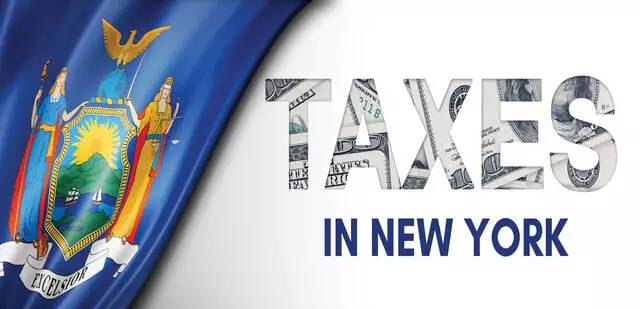
Welcome back, constant reader. There’s no snappy introduction this week since I have a lot of client work sitting on my desk. Instead, I have the following confessions:
I am a fan of the Buffalo Bills, and I am impressed by their control of the first three games. But … I am a fan of the Buffalo Bills, so I recognize that the records of the Bills’ first three opponents are a combined 2 wins and 7 losses. I am a fan of the Buffalo Bills, and I am optimistic, but only cautiously optimistic. I am a fan of the Buffalo Bills, so I believe that maybe this one time, Lucy will not pull the football off of the tee before I kick it.
There’s a bunch of jurisdictional boredom in last week’s cases. And there are a few nuggets: For instance, I admire the Tribunal for imposing, on its own motion, a frivolous petition penalty in one of the Decisions. And ALJ Chu-Fong dropped some breadcrumbs that might lead some COVID-era non-resident taxpayer-employees away from New York’s dark and ominous convenience of the employer forest and out into the sunshiny fields of bona fide business necessity. And with that overly long and tortured metaphor, I bid you adieu.
Decisions
Matter of Tuohy (September 12, 2024); Div’s Rep. Christopher O’Brien, Esq.; Pet’s Rep. pro se; Article 22/Dependent care credit (Pete Calleri).
We covered the ALJ proceeding in a previous TiNY Report, but here are the main takeaways: Petitioners are joint filers who, for tax years 2015 to 2018, claimed refunds and child and dependent care credits related to caring for Petitioner’s mother. On audit, the refunds were denied, and the credits were disallowed.
At the ALJ level, the Judge found that Petitioners failed to establish that they paid for the care of Petitioner’s mother, and that they were not entitled to the credit. Additionally, the Judge found that Petitioners: (1) failed to provide evidence supporting the amount of income they earned from 2016 to 2018; (2) failed to substantiate that the information provided by the IRS to the Division was incorrect; and (3) failed to establish what their income actually was for the years at issue.
At the Tribunal level, Petitioners made the same arguments as they did at the ALJ level. Again, the Tribunal found that Petitioners failed to produce adequate records of their dependent care expenses. The Tribunal also agreed with the ALJ that Petitioners failed to meet their burden of establishing the amount of their income. On this point, while Petitioners conceded that the income information received by the IRS was correct, they contended that their NYS AGI should have been adjusted to account for income from non-New York sources. However, Petitioners again failed to substantiate these amounts. Petitioners also couldn’t prove the amount of state, local, and foreign income taxes they paid. Because Petitioners failed to establish what their income was, the Tribunal agreed that it would be a “speculative task” for the Division to determine if different treatment of the income was warranted.
Because Petitioners failed to bear their burden of proving that the notices of disallowance and deficiency here were erroneous, the Tribunal affirmed the determination of the ALJ dismissing the petitions.
Matter of Mayo (September 12, 2024); Div’s Rep. Michelle Milavec, Esq.; Pet’s Rep. pro se; Article 22/Substantiation of deductions (Chris Doyle).
Petitioner’s tax return reported wage income of $71,185 and Schedule C business losses of $52,507. Petitioner reported that her business was photography products and services for which she reported $24,093 in gross receipts and expenses of $76,600 the majority of which (i.e. $53,500) was for legal and professional services (for a small photography business?). So, the Division performed a desk audit and requested Petitioner to provide substantiation of her claimed expenses. Petitioner’s response included “Dear Secret Tax Agent” and “[I don’t] have the time, the health, the financial resources or proven lawful obligation to participate in any more of your harassment and rights violations under the guise of some ‘audits’.” Then, Petitioner continued on with arguments that the Constitution permitted her to refuse to share her private information. For some reason, the Division did not find Petitioner’s arguments persuasive and issued Notices of Deficiency asserting additional tax due based on a disallowance of the claimed business expenses. Petitioner filed timely challenges to the Notices, and then to the Conciliation Conference Order sustaining the Notices. This was back in 2018. In 2022, Petitioner finally offered substantiation of her claimed business expenses (some of the substantiation was in Thai).
Most of the substantiation was for amounts paid to Mr. Bass for defending Petitioner against a tax audit for prior years. Mr. Bass, who testified in the ALJ Hearing, also provided management services and sales services (primarily in Thailand) for Petitioner. The ALJ ruled that Petitioner did not satisfy her burden of proving that the claimed expenses were ordinary and necessary expenses deductible under Internal Revenue Code § 163. The Judge found that Petitioner failed to demonstrate that her business was carried on with an actual and honest objective of making a profit and determined that Petitioner did not substantiate her claimed expenses.
On exception Petitioner made the following arguments, among others: “The Division’s employees ‘are aggressive liars and criminals with self-serving agenda,’” and “ALJs are fully trained and experienced in tax law, but are simply corrupt, biased, in favor of Division at all times, not fair, and are working together to rule against taxpayers ....” In short: there was not a lot of legal argument in Petitioner’s vitriol. The Tribunal sustained the ALJ’s determination. It reached that result by thoroughly applying the nine-factor test in Treas, Reg. § 1.183-2(b) to determine whether the business was engaged in for profit. I might quibble with the Tribunal’s treatment of a few of the factors, but it seems to me that the Tribunal correctly determined that Petitioner’s photography business was not engaged in for profit. Turning to the expenses, the Tribunal also agreed with the ALJ that Petitioner failed to substantiate the expenses she claimed. Oh, and the Tribunal sustained penalties.
And as a final shot (and one for which I think there is support) the Tribunal imposed, apparently on its own motion, a $500 frivolous petition penalty. I am pretty sure this is unprecedented.
Determinations
Matter of Bryant (ALJ Chu-Fong, September 12, 2024); Div’s Rep. Michelle Milavec, Esq.; Pet’s Rep. Howard Chernoff, Esq., CPA; Article 22/Convenience rule (Chris Doyle).
This is another COVID-era convenience rule case. The taxpayer predictably lost. But the determination provides a glimmer of hope.
Petitioners live in New Jersey and pre-pandemic, Petitioner husband worked in New York for an investment management firm. But for most of 2020 he worked from his New Jersey home. On their 2020 return, Petitioners reported a New York source fraction of 11.59%. And the Division audited. In response to an income allocation questionnaire (“IA”), Petitioners responded that he worked from his NJ home for 208 of 259 working days, and that “OFFICE LOCATION IN NYC WAS CLOSED[,] I WAS ORDERED NOT TO COME IN TO NYC[.]” Petitioner husband also sent a statement that his employer had set him up with a “full home office set up for full time remote work.”
On audit, the Division treated all of his work from home days as days worked in the closed NYC office of his employer.
ALJ Chu-Fong agreed with the Division. First the ALJ referred to the law that treats the New York source income of a nonresident as all income arising from a business or trade (including employment) carried on in New York. Then, he quoted from the allocation regulation that sources employment income to New York based on a New York workdays to total workdays ratio. Included in that quote was the so-called “convenience of the employer” rule: “However, any allowance claimed for days worked outside New York State must be based upon the performance of services which of necessity, as distinguished from convenience, obligate the employee to out-of-state duties in the service of his employer.”
The ALJ found that Petitioners did not satisfy their burden of proving that Petitioner husband’s work-from-home days were for his employer’s necessity, and accordingly sustained the audit result. But then the Judge diverted from prior convenience cases by stating the following: “Petitioners did not avail themselves of the opportunity to adduce evidence proving their case. NN investment was under no legal mandate to close Mr. Bryant’s New York office during the COVID-19 pandemic, but it could have ordered its employees to report from specific locations for its own necessity.” But as the ALJ noted, the Petitioners provided no evidence, other than the husband’s already-suspect testimony, that his employer’s office was ever even closed. This suggests that the COVID-era convenience cases are not certain losers. I think Judge Chu-Fong might have ruled in favor of Petitioners had they presented more evidence (or indeed any evidence) to show that the office was closed and the necessary, Covid-related reasons why. So, the determination here might provide a road map for presenting evidence that would lead to a taxpayer convenience rule win.
Matter of Duffy (ALJ Baldwin, September 12, 2024); Div’s Rep. Peter Ostwald, Esq.; Pet’s Rep. Leonard Steinberg, EA; Article 22/Timy (Pete Calleri).
Petitioner was issued a notice of deficiency dated November 10, 2021, and filed a BCMS request on June 2, 2023. The request was dismissed as untimely as it was filed after the 90-day statutory deadline, and Petitioner challenged the dismissal by petitioning for an ALJ hearing.
In cases where the timeliness of a BCMS request is at issue, the Division must meet its burden of proving that a standard mailing procedure existed and was followed to mail the notice to the taxpayers last known address. Here, while the Division introduced adequate proof that a standard procedure existed, the ALJ concluded that it was not followed. The Division only introduced a partial Certified Mail Record, and the USPS employee handling the mailing failed to record certain details. However, inadequacy of proof of mailing may be overcome by evidence of delivery, which the Division was able to establish via an affidavit by a Legal Assistant in the Division’s Office of Counsel detailing her filing of a USPS form 3811-A (Request for Delivery Information/Return Receipt) and the subsequent response confirming delivery of the notice. As such, the Division met its burden of proof.
Therefore, since the BCMS request was filed in excess of 90 days from the delivery of the notice, Petitioner’s request was properly dismissed. Accordingly, the ALJ dismissed the Petitioner’s request.
Matter of Perera (Supervising ALJ Gardiner, September 12, 2024); Article 22/DTA’s jurisdiction (Pete Calleri).
The petition in this matter was unsigned in violation of 20 NYCRR 3000.3(b)(7) and did not include a taxpayer identification number in violation of 20 NYCRR 3000.3(b)(10). The DTA made a written request that Petitioner sign the petition and provide her taxpayer identification, but she failed to do so. Accordingly, the petition was dismissed.
Matter of Khooliang (Supervising ALJ Gardiner, September 12, 2024); Articles 28 and 29/DTA’s jurisdiction (Pete Calleri).
The petition in this matter did not include a copy of the statutory notice being protested in violation of NYCRR 3000.3(b)(8). The DTA made a written request that Petitioner remedy this error, but Petitioner did not provide the information requested. Accordingly, the petition was dismissed.
Matter of Gonzalez (Supervising ALJ Gardiner, September 12, 2024); Article 22/DTA’s jurisdiction (Pete Calleri).
The petition in this matter was unsigned in violation of 20 NYCRR 3000.3(b)(7). The DTA made a written request that Petitioner sign the petition, but she failed to do so. Accordingly, the petition was dismissed.


